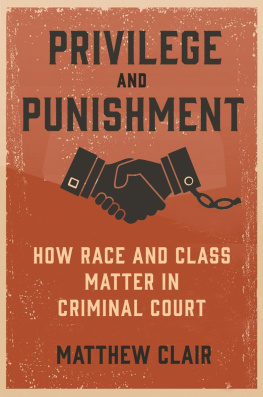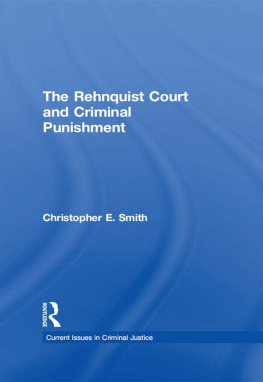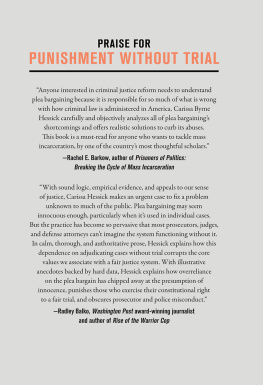Copyright 2020 by Princeton University Press
Princeton University Press is committed to the protection of copyright and the intellectual property our authors entrust to us. Copyright promotes the progress and integrity of knowledge. Thank you for supporting free speech and the global exchange of ideas by purchasing an authorized edition of this book. If you wish to reproduce or distribute any part of it in any form, please obtain permission.
Requests for permission to reproduce material from this work should be sent to
Published by Princeton University Press
41 William Street, Princeton, New Jersey 08540
6 Oxford Street, Woodstock, Oxfordshire OX20 1TR
press.princeton.edu
All Rights Reserved
ISBN 978-0-691-19433-2
ISBN (e-book) 978-0-691-20587-8
Version 1.0
British Library Cataloging-in-Publication Data is available
Editorial: Meagan Levinson and Jacqueline Delaney
Production Editorial: Brigitte Pelner
Production: Erin Suydam
Publicity: Kate Hensley (US) and Kathryn Stevens (UK)
Copyeditor: Melanie Mallon
Jacket Images and Background: Shutterstock
PREFACE
JUST OVER 60 PERCENT of adults in the United States know a family member who has been to jail. For black people, that number is closer to 80 percent. I suppose I should not have been surprised, then, when I stumbled on one of my own relatives standing at the front of a courtroom, handcuffed after a night in jail.
It happened several summers ago. I was with a colleague in Chicago for a sociology conference. We were both graduate students at Harvard at the time and were presenting a paper on how trial court judges think about racial disparities in the criminal legal system. Did they think racial disparities were a problem? If so, did they take any steps to reduce them? These were important questions, and we were eager to share some of our answers with other sociologists. After presenting, we took a break from the conference to observe court proceedings in a Cook County, Illinois, courthouse. It had become a habit of ours to explore courthouses in different cities, and we were especially curious to catch a glimpse of judicial behavior in Cook Countya court system larger and far more notorious in its treatment of criminal defendants than the courthouses we had studied in the Northeast.
We chose a random courthouse in the area, went through its metal detectors, and walked its halls. We peeked our heads into various courtrooms. Though the halls were eerily quiet, a few of the rooms were packed: the galleries full of seemingly poor black and Latino people, waiting to be called in front of discerning judges. We chose one of the quieter rooms, took our seats in the gallery, waited for a few minutes, and then I saw him. He looked oddly familiar. A husky twenty-something black man, he was brought into the room by a court officer. The court clerk announced his name for the court record; he had the same last name as I had (a fairly uncommon one). I knew that very moment that I was somehow related to him. As I watched him more closely, I was struck by how much his face looked like mine and my brothersoval, with a button nose and small ears. I was stunned.
Hours later at lunch, I called my dad to tell him the mans name. After checking with one of my aunts on my dads side, we learned that he was a first cousin. I am not sure I ever saw, much less heard of, that cousin until his day in court. You see, my father grew up in Woodlawn, a low-income black neighborhood in Chicago. In his teens, he earned a scholarship to a boarding school in New England. When he left the South Side of Chicago for high school, he left behind seven siblings, none of whom ever left the neighborhood. Those siblings did not go off to college, much less medical school. And they did not marry another physician and raise two boys in a faraway state.
My aunts and uncles have worked, lived, laughed, loved, andfar too oftenstruggled to make ends meet in the same socioeconomically marginalized, but increasingly gentrifying, neighborhood in Chicago where they were raised. When I was a child growing up in the suburbs of Nashville, we would make occasional trips back to Chicago to visit dads side of the family. My brother and I would devour savory food and play video games with a few cousins we had come to know. My parents would sit in modest kitchens or on back porches and get the updatesabout that one relative who was recovering from gunshot wounds endured during a drive-by shooting or another who was sitting in jail for carrying a dime bag of marijuana. Over the years, our visits were fewer and fewer, the updates more and more sparse.
After the conference that summer, I returned to Cambridge, Massachusetts, and googled my cousin. The first search result was not a LinkedIn page or even a Facebook profile. Instead, it was his mugshot. He grimaced for the camera. I imagined how all the complexity of his lifehis hopes, his love for his girlfriend and childrencould be papered over by this administrative photograph. It was the image of him that would be available to the police, the prosecutor, the judge, and even his defense attorney. This image would follow him in his every interaction with the court and into his daily life. Even though I knew next to nothing about this cousin, I saw myself in himeven in his mugshot. I understood that were it not for my dads good fortune, I easily could have been in his position: a black boy growing up in poverty, attending schools underfunded by the government, and worrying about the gun violence that had taken a few members of our family far too young. Sadly, I never got to know my cousin for precisely that reason. He, like one of our uncles before him, died from gunshot wounds. He passed not long after his court appearance, and before I took the time to meet him, meet his family, and learn his story. I regret never reaching out to him directly.
This book is largely motivated by my cousins experienceand my brief and insufficient encounter with it and with him. The shock of witnessing him in court that summer was at once unbelievable and perfectly predictable, given what we know about the scale of mass criminalization in the United States today. Despite our shared family history, our lives were worlds apart. This contrast frustrated me and tugged at my sociological imagination. I wondered: What if I had been arrested and faced the same charge he faced? The exercise was not purely theoreticalI drank alcohol when I was in my late teens and used marijuana in a state where it had yet to be decriminalized. When I was in college, I knew of a couple students a few years above me who had been arrested in a dorm room for drug possession. What had happened to them? How had they dealt with their court cases? Had their relative privileges as elite college students protected them from punishment in ways unavailable to people like my cousin?





